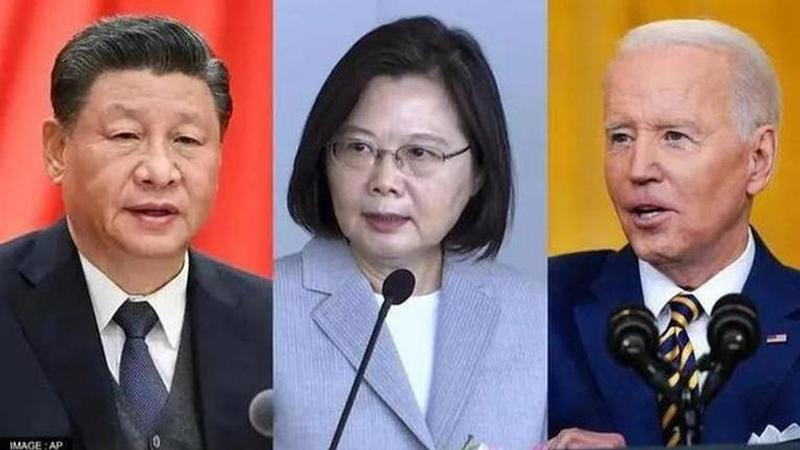Published 23:01 IST, May 27th 2023
'Ten for Taiwan,' US select committee shares a blueprint on countering China's aggression
The US House Select Subcommittee on the Strategic Competition between the US and China release a report that outlines the steps to counter Chinese aggression.

The US House Select Subcommittee on the Strategic Competition between the United States and the Chinese Communist Party released a report that outlines the steps needed to counter Chinese aggression against Taiwan. The report is titled “Ten for Taiwan” and it offers lawmakers a blueprint of what Congress can do to deter Chinese aggression on the self-governed island. While Beijing has never governed the island it considers Taiwan as part of mainland China since 1949. The US also acknowledge the infamous “One China Policy,” however, it has been concerned about the island’s sovereignty status.
“Taiwan is a cornerstone of the global economy and a vital partner of the United States. Despite never having exercised control over Taiwan, the Chinese Communist Party (CCP) asserts a historical claim to sovereignty over Taiwan and continually threatens to “reunify” it with the People’s Republic of China (PRC), by force if necessary,” the subcommittee stated in the report. “The CCP’s aggressive behaviour damages peace and stability across the Taiwan Strait and raises serious concerns about the prospect of outright military aggression toward Taiwan, including an invasion,” the report further added. The report then went on to list out ten points of action on how to go about the ongoing crisis. It also highlighted the areas where the United States is lacking.
What are the 10 key findings?
Following is the list of 10 key findings drawn out by the US House Select Committee:
- The United States needs additional long-range missiles and unmanned vehicles in the Indo-Pacific region and the U.S. defence manufacturing base is not postured to quickly produce the needed numbers.
- The United States and its allies need to strengthen and better coordinate collective planning for how they will deter CCP.
- Improving combined training between the U.S. and Taiwanese militaries.
- Taiwan urgently needs key U.S. weapons systems already approved by Congress for sale.
- The United States does not currently have a clearly defined operational command and control structure for contingency response in the Indo-Pacific.
- US critical infrastructure is vulnerable to CCP cyberattacks.
- Taiwan faces consistent CCP cyber-attacks and remains vulnerable in the cyber domain.
- US and Taiwanese forces do not currently plan or operate in an integrated manner.
- US bases in the theatre should be strengthened against the possibility of a PLA attack.
- Resupplying Taiwan would be difficult in the event of a crisis
Why Taiwan matters to the United States?
The report also highlighted that a future CCP invasion or attack on Taiwan also have a significant impact on the United States. The committee stated that global markets can face a loss of a whopping $2 trillion in case of an attack on Taiwan. This will plunge the US and other world economies into a major economic crisis. The committee also highlighted that the attack on Taiwan would severely impact the world’s supply of semiconductors, depriving many of the ability to maintain critical infrastructure in their respective nations.
“An attack on Taiwan by the PRC could increase the risks of a global economic recession, sustained inflation, widespread sovereign defaults, rising unemployment, and potential social unrest,” the report asserted. Commenting on the report Rep. Mike Gallagher stated that the recommendation in the report is consistent with the Taiwan Relations Act. “Everything in this report is entirely consistent in the Taiwan Relations Act and more recent legislation calling for enhanced exchanges and visits between our two governments,” Gallagher said. “[China] is going to claim ‘provocation’ even at the lowest end of the competition, and so we just can’t allow that fear to .. deter ourselves [from engagement],” he added.
Updated 23:01 IST, May 27th 2023




